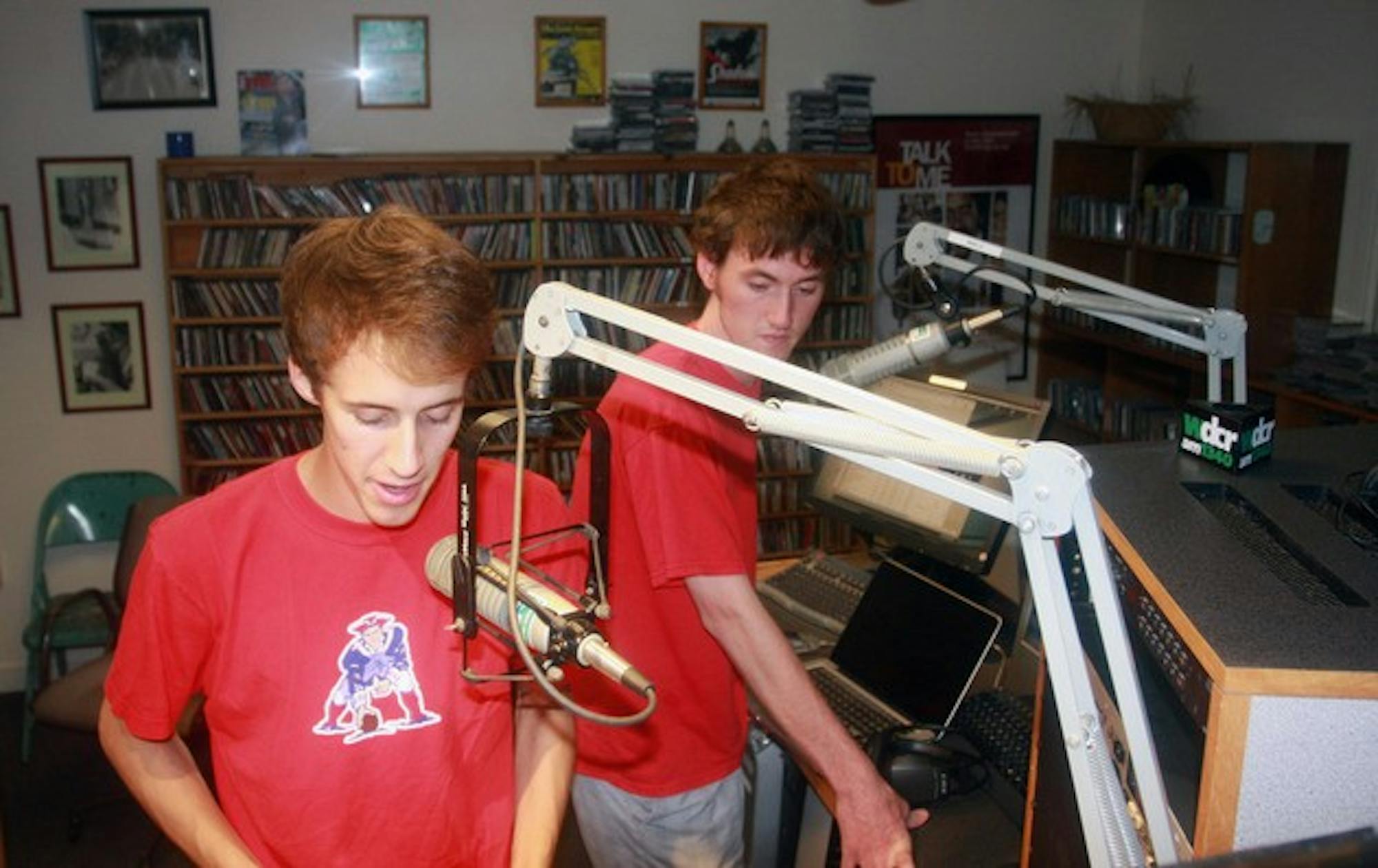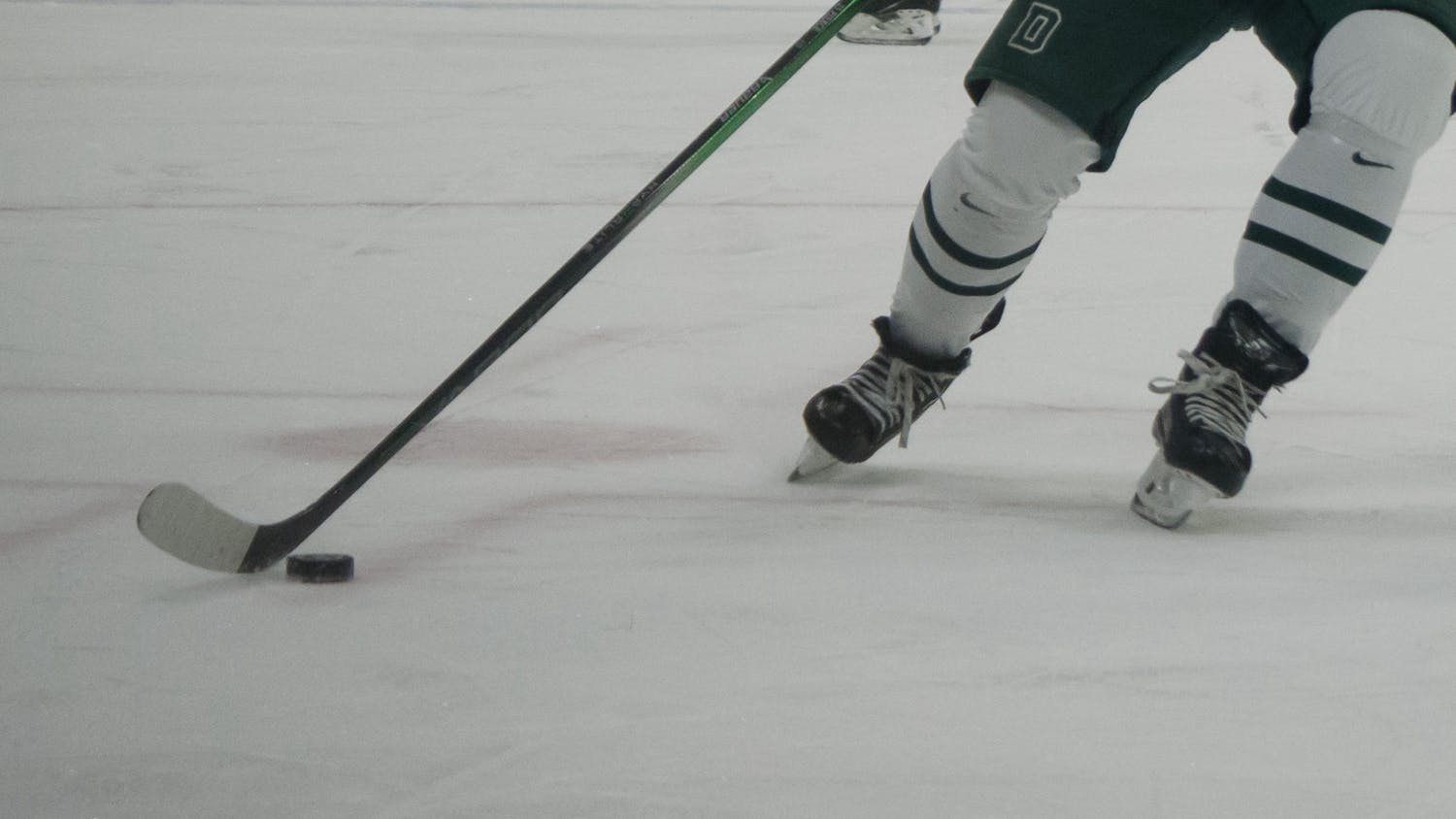Summer program director Cooper Thomas '14 is the host of Instrumental Anesthesia, a collection of instrumental, atmospheric sounds that he says are conducive to studying.
Thomas, who dabbles in music production in his free time, said he turned to broadcasting his freshman winter after friends he had sent songs to asked him for similar albums and playlists.
"It stimulated my desire to share with a broader group," he said.
Thomas finds much of his new music through blog aggregators and said he likes to balance electronic pieces with more ambient, acoustic songs.
"Sometimes I have a theme for the show, like more sunny, upbeat music," Thomas said
Julian MacMillan '14, who hosts Lexical Gaps with Terence Conklin '14 and Gabe Redel-Traub '14, said he and his friends started out talking on the show but soon realized that they preferred playing music instead.
The show, whose name refers to an idea that does not have a corresponding word in English, plays hip-hop music and features freestyle rapping from its hosts.
Sophomore summer in particular allows new people to try their hand at broadcasting. Michael Parets '14 started Summer Hearth, an eclectic mix with no driving genre or playlist, he said.
"It's whatever I see in my iTunes that would go well next," Parets, who may turn it into a seasonal show, said. "I try to capture songs that encapsulate a summer feeling, so more light-hearted things."
Hosts sometimes move between shows, inviting their friends to co-host. Thomas visited Summer Hearth earlier this week as Summer Hearth's first guest DJ and has brought some guest DJs to his own show in the past, he said.
Radio hosts said they are also looking to incorporate more live performances in the future, taking advantage of the numerous student bands and singers on campus. Lexical Gaps would like to feature more slam poetry and freestyle rapping in the future, MacMillan said.
The studio offers students a unique experience and the chance to use high-quality equipment, MacMillan said.
"There's a huge soundboard, and you feel professional even though you're just hanging out with friends," MacMillan said.
While music shows are popular, WDCR also hosts student talk shows.
Shane O'Neal '14, a co-host for the Big Green Scene with Charlie Hetke '14, Gil Whalen '14 and Matt Diephuis '14, said he often gets to interview athletes and coaches and talk about professional sports.
"One of my favorite moments was interviewing Jim Beattie '76, who pitched for the Yankees when they won the World Series," O'Neal said. "We were able to just call him up and talk to him because he was an alumnus."
O'Neal said he has a lot of creative working at WDCR.
"When I started I wasn't sure what else besides the sports station I wanted to do, but now I can do live color commentary for baseball and basketball," he said.
O'Neal is also the summer general manager for Dartmouth Broadcasting, the umbrella organization for 99Rock, the FM station, and WDCR, a former AM station that now streams online.
"People can talk about anything from new house music to an issue on campus," O'Neal said.
99Rock plays music all day, and a professional overseer picks the playlist. Students can join the station as a radio DJ or on-air personality, according to O'Neal.
O'Neal has focused on promoting the station this summer, setting up tents at events over Fieldstock weekend and at Pelt-a-Delta dodgeball tournament, and said he hopes to eventually revamp the Dartmouth Broadcasting website.
Thomas said that WDCR is always looking for more students to host shows, and students are encouraged to come in at any time to be trained and start their own shows.
"There's a lot who probably want to but don't know about the opportunity," he said.
The shows' audiences are usually populated by friends and families of the hosts, but every once in a while listeners who aren't affiliated with Dartmouth call in.
"It's exciting that people are listening who aren't in the Dartmouth bubble," Thomas said.




